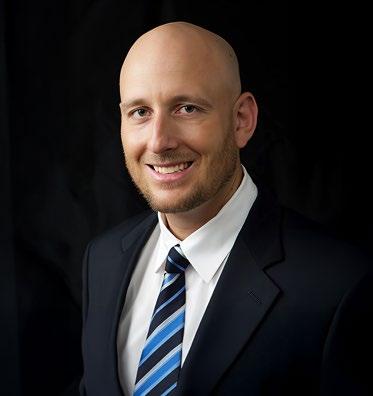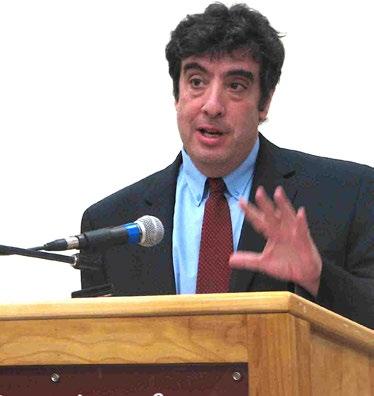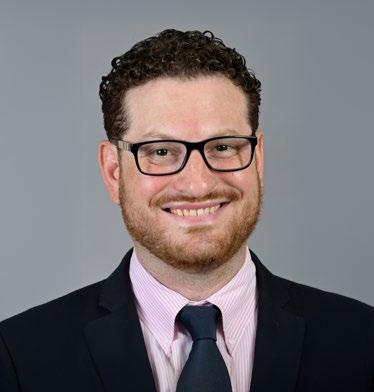
OCCASIONAL PAPER
ASSAD’S SYRIA:
Why It Fell, What’s Next, and Averting Future Violence

Thank you to the FIU Václav Havel Program for Human Rights & Democracy for its support to produce this report.
Thank you to the Mohsin & Fauzia Jaffer Center for Muslim World Studies and the Department of Politics & International Relations for co-sponsoring the webinar.
Copyright © 2025 by the Steven J. Green School of International and Public Affairs. Florida International University, Miami, Florida. All rights reserved.
ASSAD’S SYRIA: Why It Fell, What’s Next, and Averting Future Violence
In the wake of the collapse of the Assad regime in Syria late last year, on March 5, 2025, the Václav Havel Program for Human Rights & Democracy in the Steven J. Green School of International & Public Affairs at Florida International University (FIU) presented the webinar, “Assad’s Syria: A Legacy of Torture and Human Rights Abuses.” This occasional paper is an account of that event.
The rapid downfall of the regime of Bashar al-Assad astonished even Middle East experts who had studied Syria for decades. A recent panel discussion at the Steven J. Green School of International & Public Affairs explored why the regime collapsed so quickly, who is governing Syria today, and how the recurring violence and human rights abuses can be stopped.
Since 2009, Jeremy Julian Sarkin (Distinguished Research Professor, Universidade NOVA de Lisboa) has worked with Syrians to find their relatives who had disappeared into the “morass of the Syrian detention centers;” he was instrumental in creating a U.N. program in 2023 to locate those “disappeared.” Aaron Y. Zelin (Gloria and Ken Levy Senior Fellow, Washington Institute for Near East Policy) is an expert on jihadi groups. And moderator Eric Lob (Associate Professor, Department of Politics & International Relations, FIU) focuses on Middle East politics and lived in Syria for a year and a half.
Why Did the Regime Fall So Quickly?
A combination of factors led to the rapid downfall of the Assad regime, but as Zelin admitted, “Nobody would have predicted that the regime would collapse in 10 days. I had a feeling that the regime would fall eventually, but maybe five, 10, or 15 years from now. So even for somebody who is following what’s happening there on a day-to-day basis, it was quite astonishing.”
Syria had become increasingly isolated and its allies weakened. Russia, its main patron, has been laser focused on Ukraine since invading it in 2022 and was suffering economically, and Iran had been weakened by Israel’s post-October 7 campaign against its proxies in Gaza and Lebanon.
Because of the West’s economic sanctions on Syria, the Assad regime had looked to generate revenue by selling “captagon, which is a narcotic drug, and they more or less became a narco state in recent years,” said Zelin. “That
hollowed out a lot of the state institutions and created even more corruption than before.” Meanwhile, the many different insurgent groups, which controlled areas of Syria, had built up their military capabilities and gained experience in governing areas under their control.
“We have more documentation of the egregious war crimes and human rights abuses committed by the Assad regime than there was during the Nuremberg trials,” added Zelin. “And we could see the mass graves and the condition of the prisoners who fled from the notorious prisons after the regime’s collapse.”
Sarkin noted that the Syrians were also suffering under “high inflation and poverty and massive destruction, and the will of people in the army was really undermined by the length of the war and the lack of support that they were getting from the system. The system really sold them out to such an extent where they felt demoralized completely, and it was waiting for the spark in many ways, which eventually came.”
Who Is “Governing” Syria Today?
The key question is whether Ahmed al-Sharaa – the interim president of Syria and the leader of the Hayat Tahrir al-Sham (HTS), the group most responsible for toppling Assad – as well as other factions involved in the offensive, are still rebels, former rebels, civil society actors, or even former regime members.
Zelin’s brief history of HTS gives guarded hopes for optimism. It broke more than a decade ago from ISIS and Al Qaeda, and since then, it had set up a “Salvation Government” that began providing social services in the area it controlled. By 2022, HTS stopped “its moral policing…and did some outreach to minorities such as Christians and Jews in the area; it even allowed Christians to rebuild their churches,” explained Zelin.
Another positive sign is that the interim government has taken some steps to building its legitimacy and engendering trust among minority groups and even women. It convened a National Dialogue Conference in Damascus on February 25, 2025, which was attended by 900 participants from across the country and representing many groups. Although it was convened hastily and excluded some factions, there are hopes that this conference marked the beginning of a more open government.
How Can a Recurrence of Violence Be Prevented?
The seminar presenters did not minimize the difficulties of rebuilding a war-shattered state – almost from scratch – in a region with a centuries-long history of conflict and, most importantly, in a way that would reduce the incentives of Syrians to take up arms again. Rebuilding will only succeed “if we develop the political and social institutions of a society in an inclusive way, bringing groups together and helping them understand that the process of nationbuilding is beneficial to them,” observed Sarkin. “How does one get people in all the different factions to feel
that conflict does not have to continue, that they can trust the system and see it as protecting them?”
He continued, “From my years of studying these processes, I have found that between 40% and 50% of societies where they’ve had conflict and violence reenter into conflict and violence within five years.”
One lesson learned from the U.S. experience in Iraq was the harmful effects of “debathification” – the wholesale dismemberment of the government bureaucracy and army after toppling Saddam Hussein. When asked whether that process was being repeated in Syria, Zelin noted that fortunately “the bureaucracy is pretty much intact. Because of that there are many minority groups that continue to be part of the ministries and working every day, since many of them were part of the Assad regime.” Many local bureaucrats are also still on the job.
Still, what is very worrying is that we have seen “some remnants of the regime trying to reorganize, and it’s slowly building up. I don’t know if you’d call it an insurgency yet or not, but you do see assassination attempts at different checkpoints or kidnappings, an axis of resistance. We do not have good enough information to know the extent of Iran’s involvement or whether is it just local. But obviously this is not a good sign,” said Zelin.
The dire economic state of the country also does not bode well for a stable future. Ninety percent of the population lives in poverty, and one-third of the buildings are either destroyed or hollowed out. Before reconstruction can start, tons of rubble must be removed. Yet, the economic sanctions placed on the Assad regime will likely not be lifted until the West sees some signs of stability, which may be difficult to produce.
The seminar concluded with a discussion of the truth and reconciliation centers being set up in Syria. A successful transitional justice process can alter the trajectory toward recurring violence, noted Sarkin, and the recent meeting between the interim president and the families of the “disappeared” is a good start.
“Transitional justice is integrally interlinked with the dire economic situation and the constitutional systems,” said Sarkin. “It can help find all the money that was looted. It can find all the family members who were able to benefit through selling drugs and all the other corruption, and getting them to pay for the reconstruction of the country is particularly important.”
Continued Sarkin, Syria now faces the herculean task of making progress toward “developing the political and social institutions of a society in an inclusive way, bringing groups together and helping them understand that the process of nation-building is beneficial to them, of getting the people in all the different factions to feel that conflict does not have to continue, that they can trust the system and see it as protecting them.”
–Gail Naron Chalew
Postscript
The sudden collapse of the Assad regime in early 2025 shocked even longtime Syria observers. Yet, as discussed in the Václav Havel Program’s timely webinar, the regime’s downfall was the result of years of corruption, economic collapse, and international isolation. Assad’s transformation of Syria into a narco-state – compounded by high inflation, poverty, and weakened military morale – left the state hollow and vulnerable.
In the power vacuum that followed, new leadership emerged. Ahmed al-Sharaa and the Hayat Tahrir al-Sham (HTS) coalition – once linked to extremist groups – now lead an interim government that has made cautious strides toward legitimacy. Initiatives such as outreach to minorities, a halt to moral policing, and the recent National Dialogue Conference suggest a willingness to pursue more inclusive governance.
However, deep challenges remain. The threat of regime remnants, persistent poverty, and unresolved sectarian tensions continue to endanger Syria’s fragile transition. As panelists noted, true stability will depend on building inclusive political institutions, addressing past atrocities through transitional justice, and revitalizing the devastated economy.
International support will be essential. Sanctions relief, tied to meaningful reforms, could incentivize progress. Ultimately, Syria’s future hinges on whether its people can rebuild trust in governance and resist a return to cycles of violence. The fall of Assad offers a rare opportunity to chart a new course – toward accountability, inclusion, and peace.
The Steven J. Green School of International & Public Affairs will continue to follow developments in Syria and present compelling programming on these issues through both its Václav Havel Program for Human Rights & Democracy and Mohsin & Fauzia Jaffer Center for Muslim World Studies.



